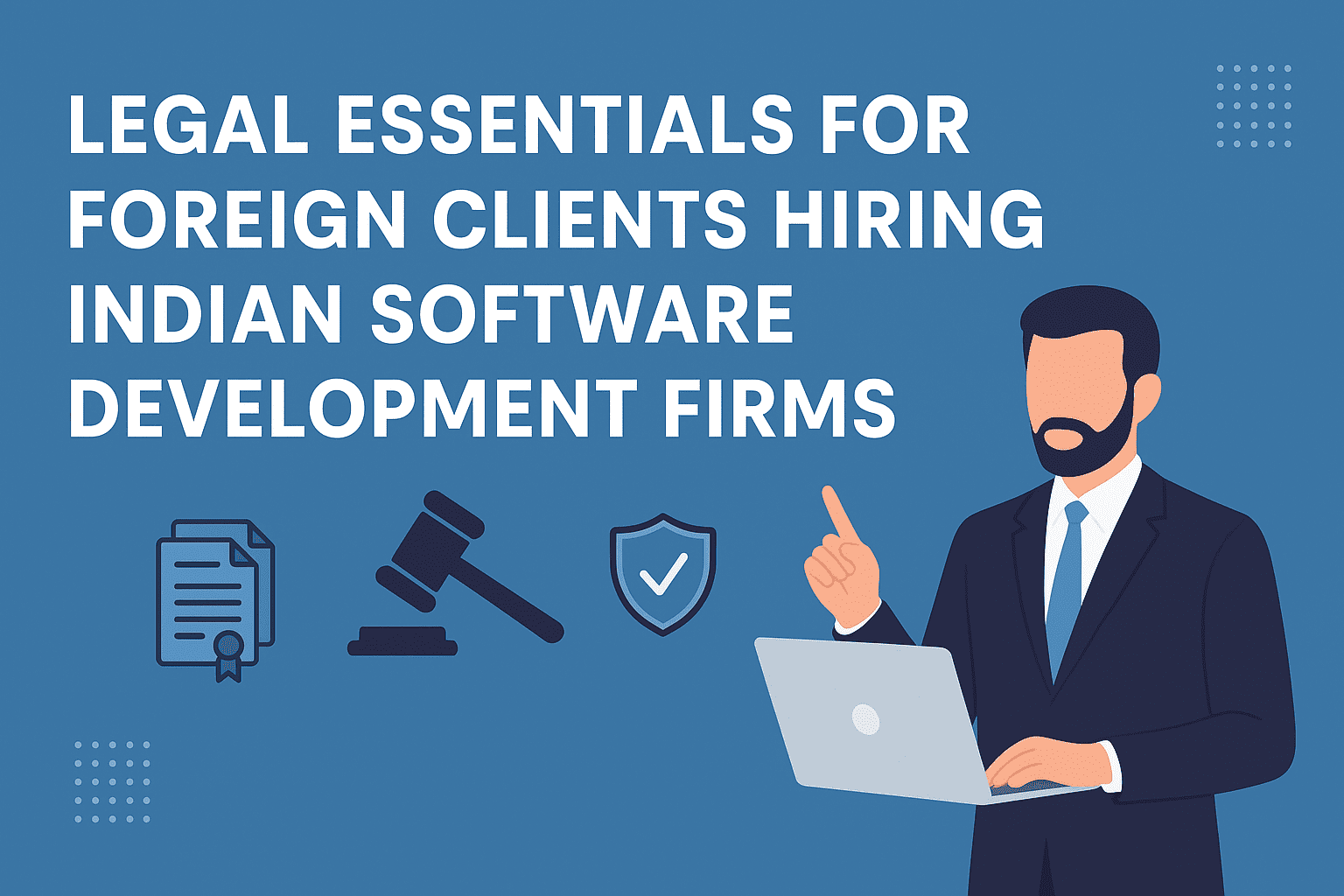
India has become one of the world’s most preferred countries to hire software developers. It’s no surprise that organizations from all over the world, from small startups to large Fortune 500 corporations, pick Indian providers for their IT requirements. They have a lot of experienced engineers, affordable pricing, and a track record of completing projects on time. Finding the right staff is only one aspect of outsourcing software development. In addition, you must ensure that your intellectual property (IP) is safe, that your project is completed on time, and that your organization follows the rules. At Tech Legal, we help foreign clients understand the legal and contractual landscape while dealing with Indian vendors. This ensures that there are no issues, the efforts are safe, and they are legal. Before you hire a software development company in India, you should think about several important legal issues.
- Know Your Customer (KYC) and complete your homework: Conduct a thorough Know Your Vendor (KYV) or Know Your Counterparty (KYC) check before signing any contract. Verify that the company is legally registered by checking the Ministry of Corporate Affairs’ (MCA) database. Obtain a copy of the company’s PAN card, Certificate of Incorporation, and any other registrations required. If possible, obtain a background check report to ensure that there are no active lawsuits or bankruptcy cases. KYC is more than just a formality; it is the first step toward protecting yourself from fraud or not receiving what you paid for.
- Create a detailed Master Service Agreement (MSA): A well-written MSA is the most important part of any outsourcing agreement. It should clearly state the work that has to be done and the project’s deliverables, payment conditions and milestones should be associated with deliveries, ensure ownership of intellectual property, including code, designs, and deliverables, ensure code is original and not infringed upon by others, understand contract termination rights and consequences and address disagreements through arbitration, controlling law, or jurisdiction. Our lawyers frequently draft cross-border outsourcing agreements. These agreements are valid in India and protect your rights in your own country.
- Protecting intellectual property: When you outsource, your most valuable asset, intellectual property (IP), is also the most vulnerable. Include an IP Assignment Clause to ensure you own the software and materials after payment. Make it illegal for the vendor to reuse your code or designs for other clients. Sign NDAs with the corporation and major developers. If it makes sense, consider acquiring any relevant trademarks, copyrights, or patents.
- Complying with privacy and data protection regulations: If your project involves the handling of personal data, particularly from individuals in the EU or the United States, you must ensure that it meets the criteria of the GDPR or CCPA. This includes, making sure that the vendor maintains data security standards, not allowing subcontracting without your approval. Setting timeframes for data breach notifications, ensuring that data transfers across nations follow the applicable laws. India is also working on the Digital Personal Data Protection Act of 2023 (DPDPA), which would make it easier for Indian businesses to protect people’s personal information.
- Following the rules for payment and currency: India’s Foreign Exchange Management Act (FEMA) governs international payments. Make sure you use official banking channels to make payments. Invoices comply with Indian tax requirements, such as GST and TDS, if applicable. The contract must clearly state which taxes, currencies, and conversion rates apply.
- Make a plan for settling disagreements: Most projects run smoothly, but there may be concerns with finances, quality, or delays. Add arbitration clauses (India is a party to the New York Convention, therefore international arbitration decisions are valid), a dominating law clause allows you to pick between Indian law, the law of your own country, or a neutral location.
Hiring a software development company in India could transform the way your business operates. You must, however, follow the proper legal procedures first. At Tech Legal, we help foreign clients hire and manage Indian contractors to ensure timely delivery, project alignment, and legal protection. If you’re hiring in India for your next software project, we can help with the legal aspects from the start.
